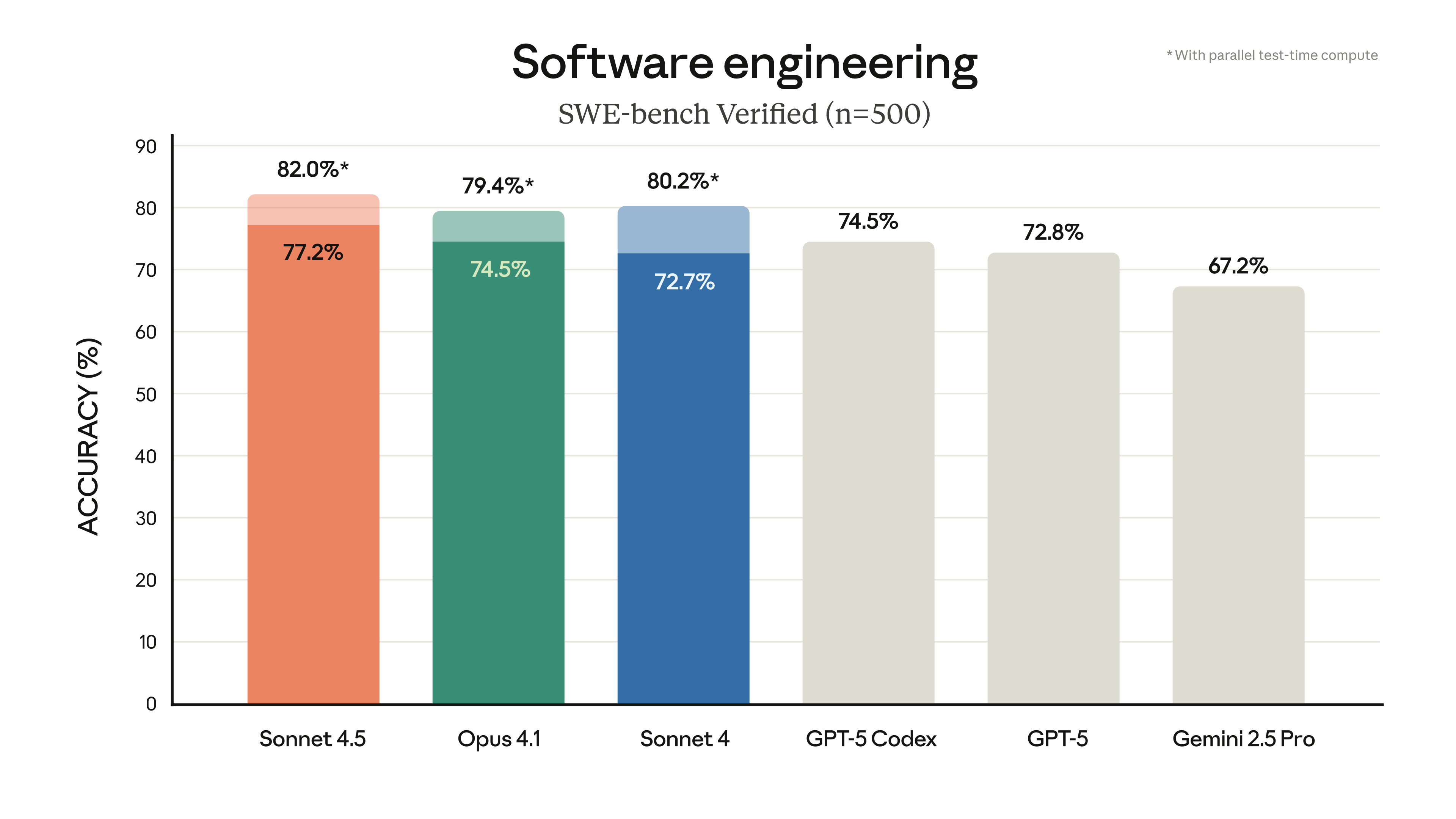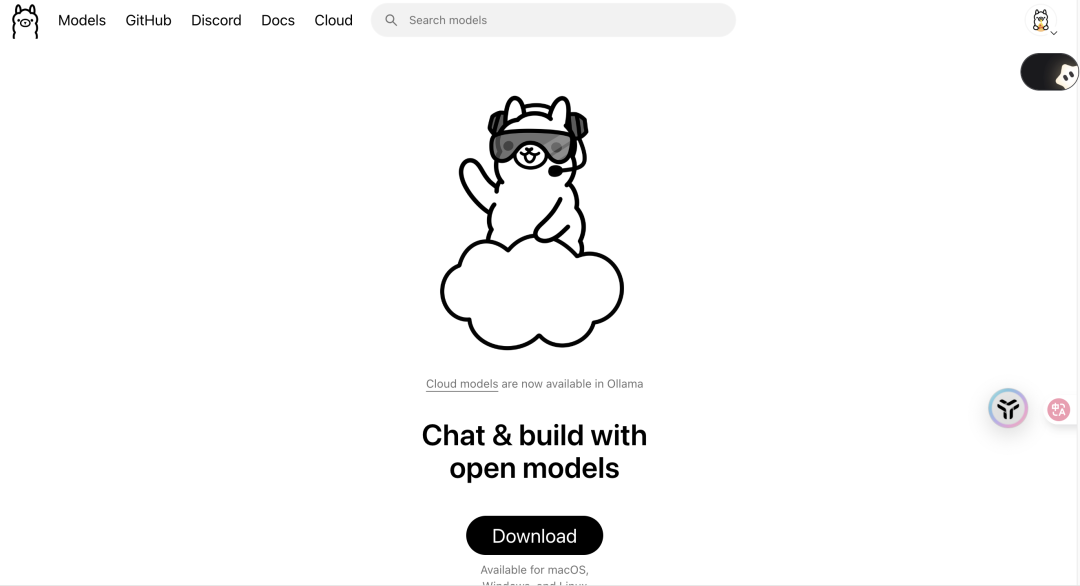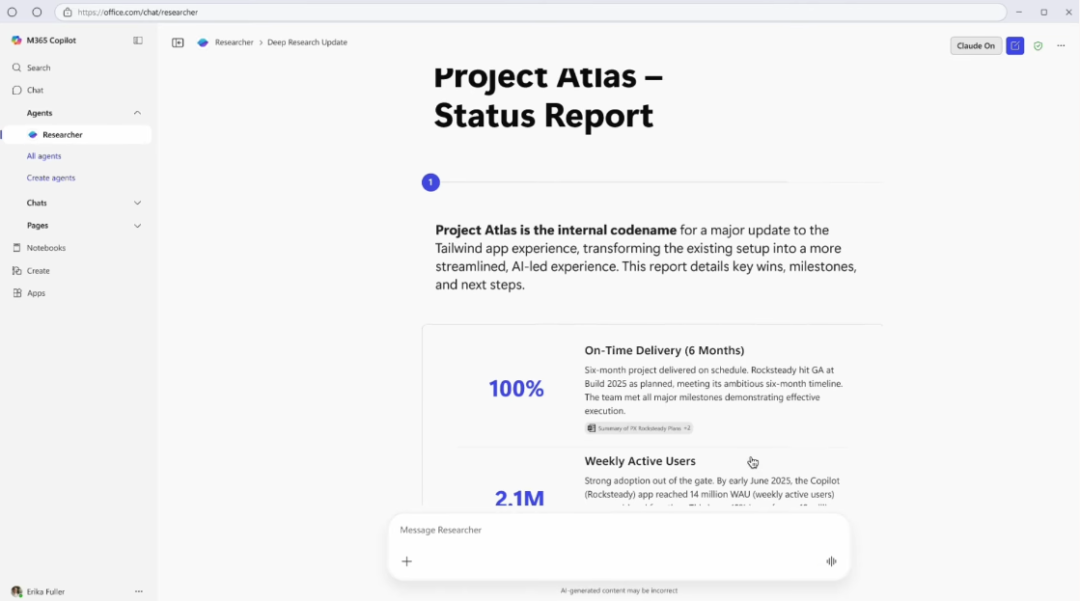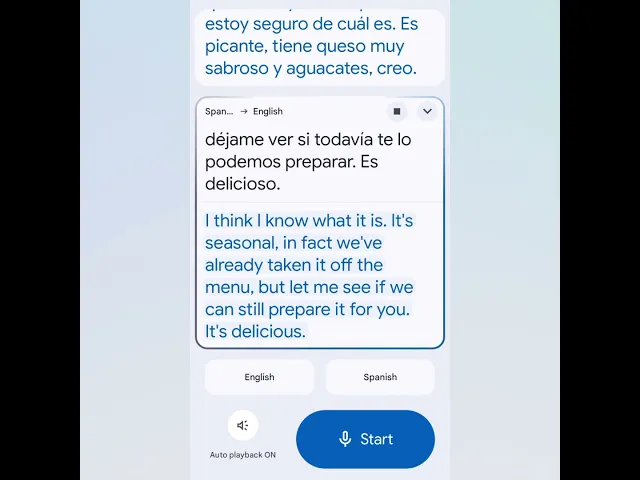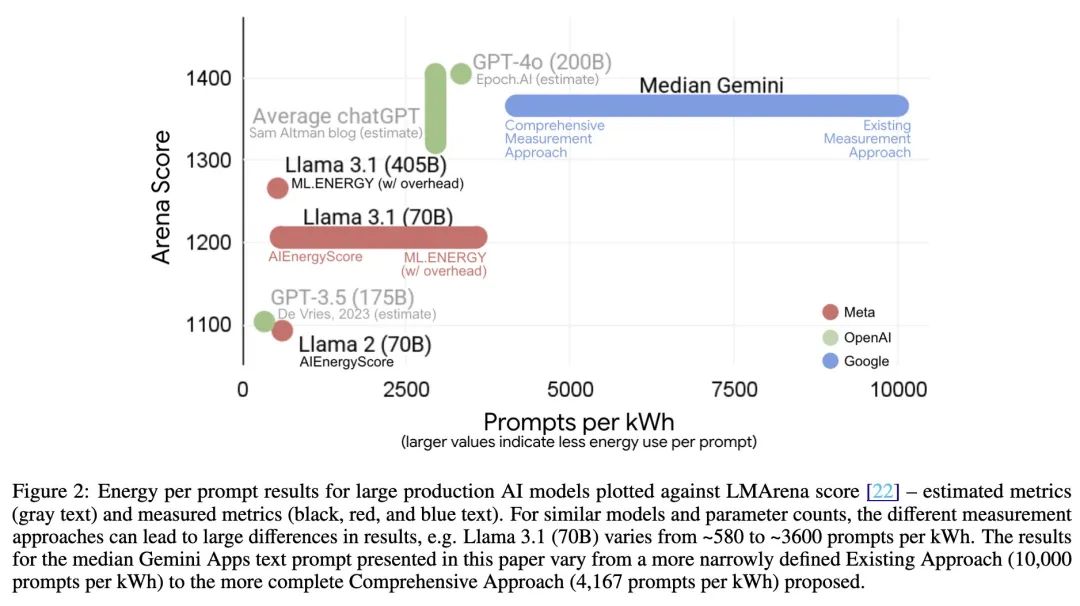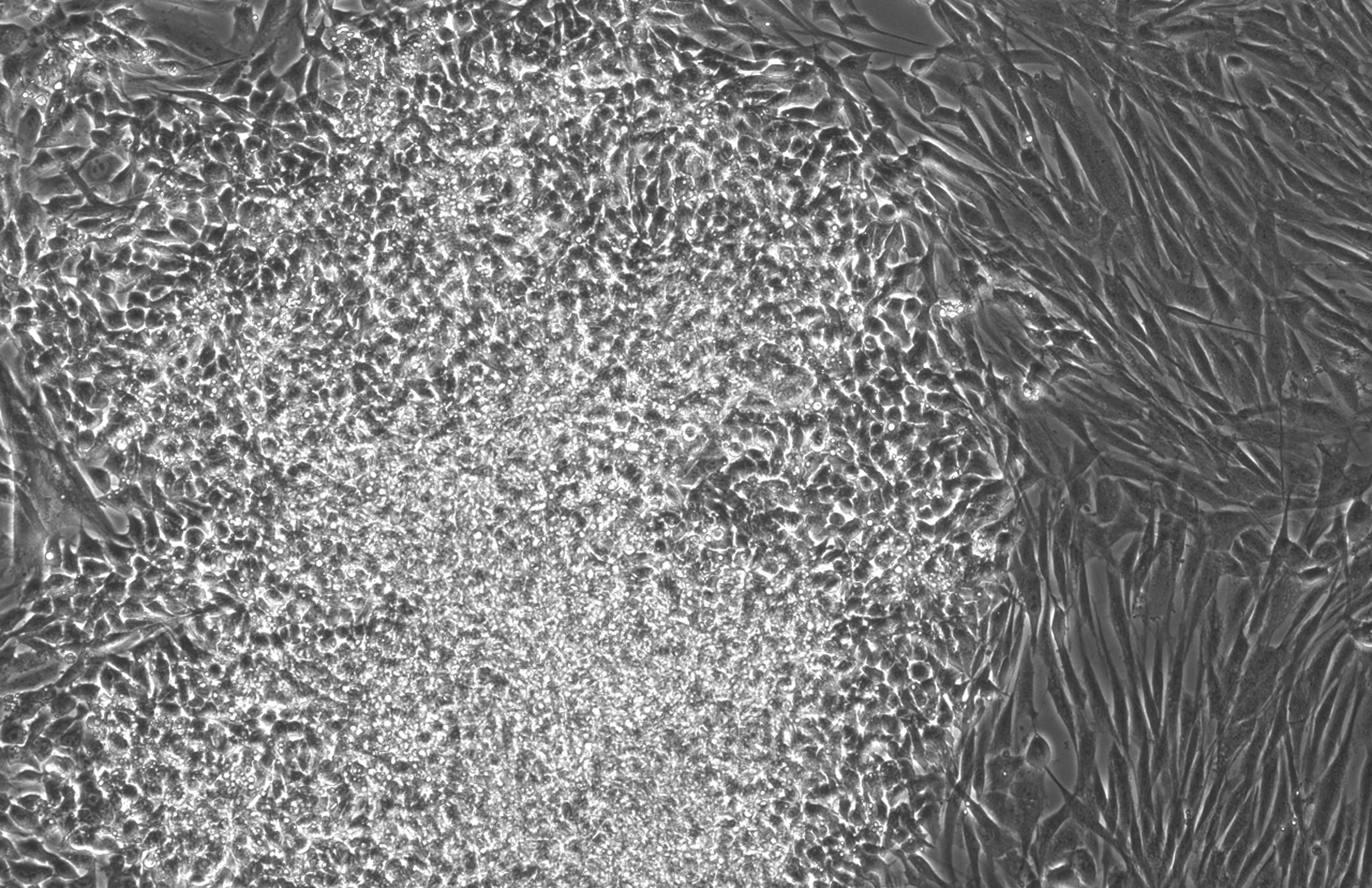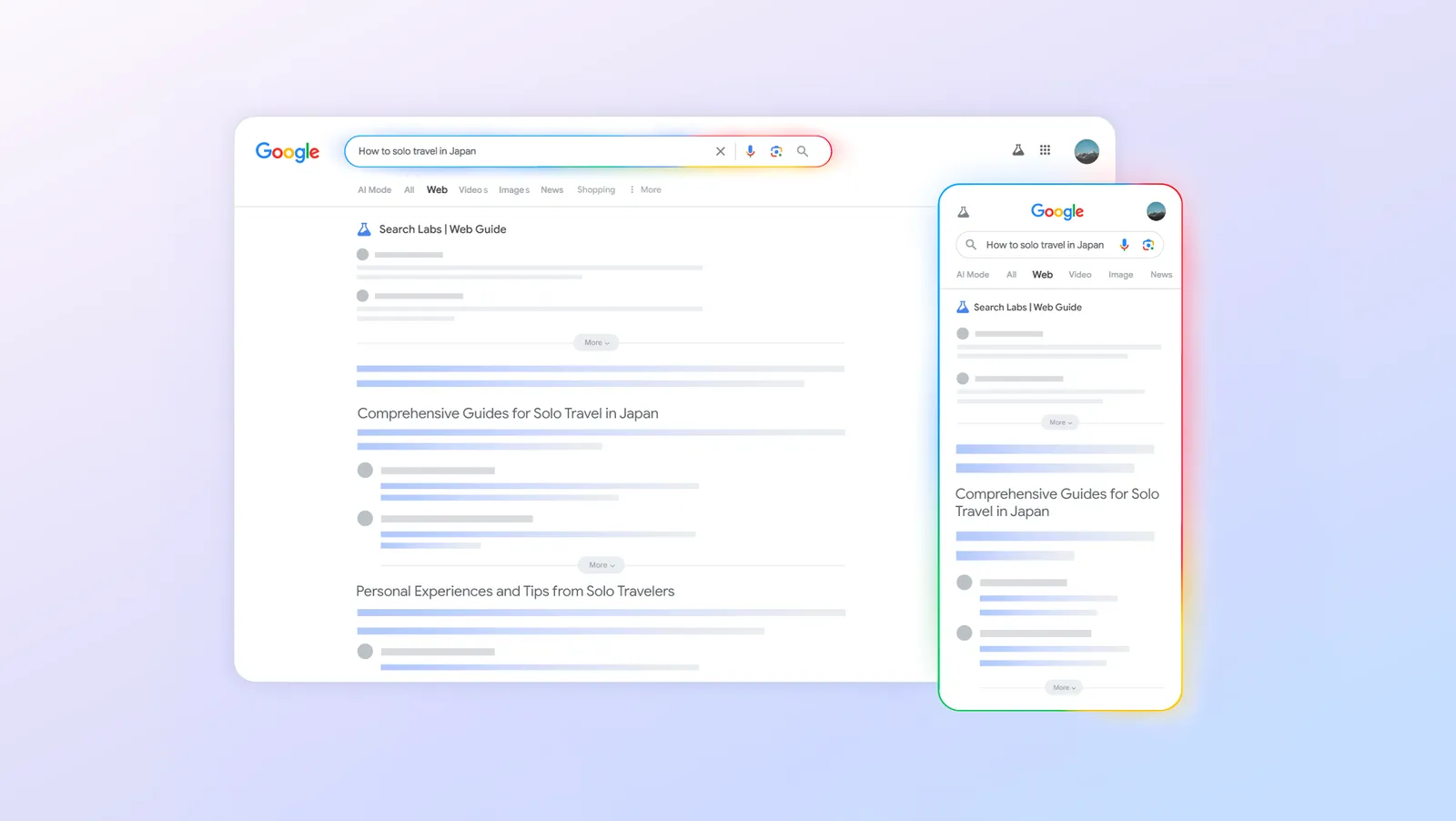
Google is in the midst of its Search Labs platform to test a program called Web Guide The new feature. The core idea behind this experiment is to use artificial intelligence to take the web links on the search results page and reorganize them in a smarter, more structured way, aiming to simplify the process of discovering information and exploring the web for users.
How does Web Guide work?
Web Guide works differently than a traditional search results list. Instead of simply listing links vertically, it groups related pages together. For example, when you do an open-ended search such as "how to travel alone in Japan", theWeb Guide The results are organized into categories such as "Trip Planning", "Budget and Expenses", "Safety Precautions", "Accommodation Options The results will be categorized into "Travel Planning", "Budget and Expenses", "Safety Precautions", "Accommodation Options", etc., and links to related web pages will be displayed under each category.
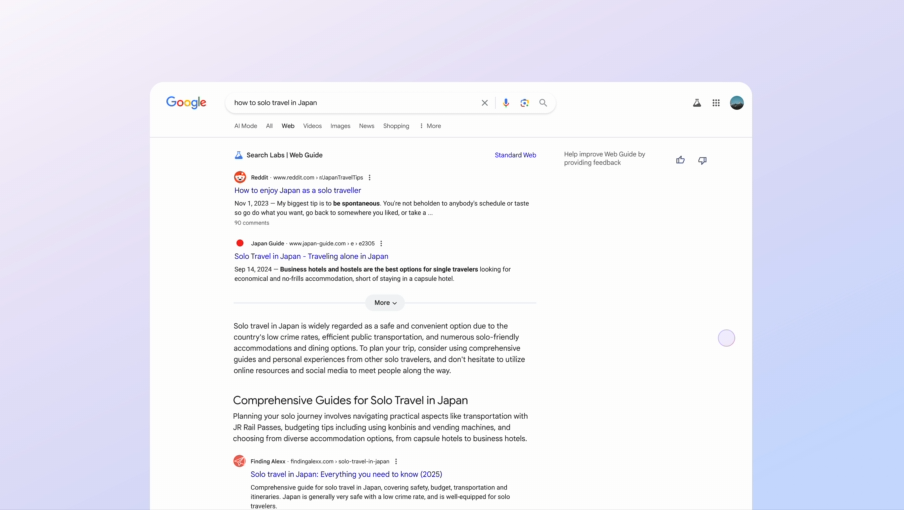
The technology at the heart of this feature is Google's own Gemini A customized version of the model. The model provides a deeper understanding of the user's search intent as well as the specific content on the web page. In addition, theWeb Guide A technique called "query fan-out" is also used. Simply put, when a user enters a query, the system will act like a casting net, executing multiple related sub-queries simultaneously in the background, capturing and recognizing the most matching web page results from different perspectives, so as to discover some high-quality content that may have been overlooked in the regular search.
This feature works not only for broad exploratory questions, but also handles more complex long sentence queries such as, "My family is scattered across different time zones, what are the best tools to help us stay in touch and maintain close relationships?"
An attempt to balance AI with traditional search
It is worth noting thatWeb Guide The launch can be seen as an important exploration in the direction of AI search by Google, which is similar to the previously highly publicized AI Overviews (AI Abstract) Functions are in stark contrast.AI Overviews The tendency is to give a direct summary answer generated by the AI, while the Web Guide The focus is on "guiding" and "organizing", which puts the initiative of discovering web pages back in the hands of the user and optimizes the presentation of web links through intelligent grouping.
This design, in part, responds to concerns that the AI summary feature could "kill" website traffic.Web Guide Doesn't replace web links, but tries to make the arrangement of those links more logical and useful. It's more like an intelligent librarian, responsible for sorting books into categories rather than just reading and writing a summary for you.
How it was experienced and what the future holds
Currently.Web Guide Only for those who have joined Search Labs It is available to users on the program and first appears under the "Web" tab of the search results. Users can easily switch back to the standard web list view at any time after the experience.
Google said that as the experiment is carried out, they will be based on user feedback, and gradually try to search in the "all" results home page and other more locations to display the results organized by the AI, in order to explore the scenarios in which it can maximize the help of people to find valuable information on the network.



